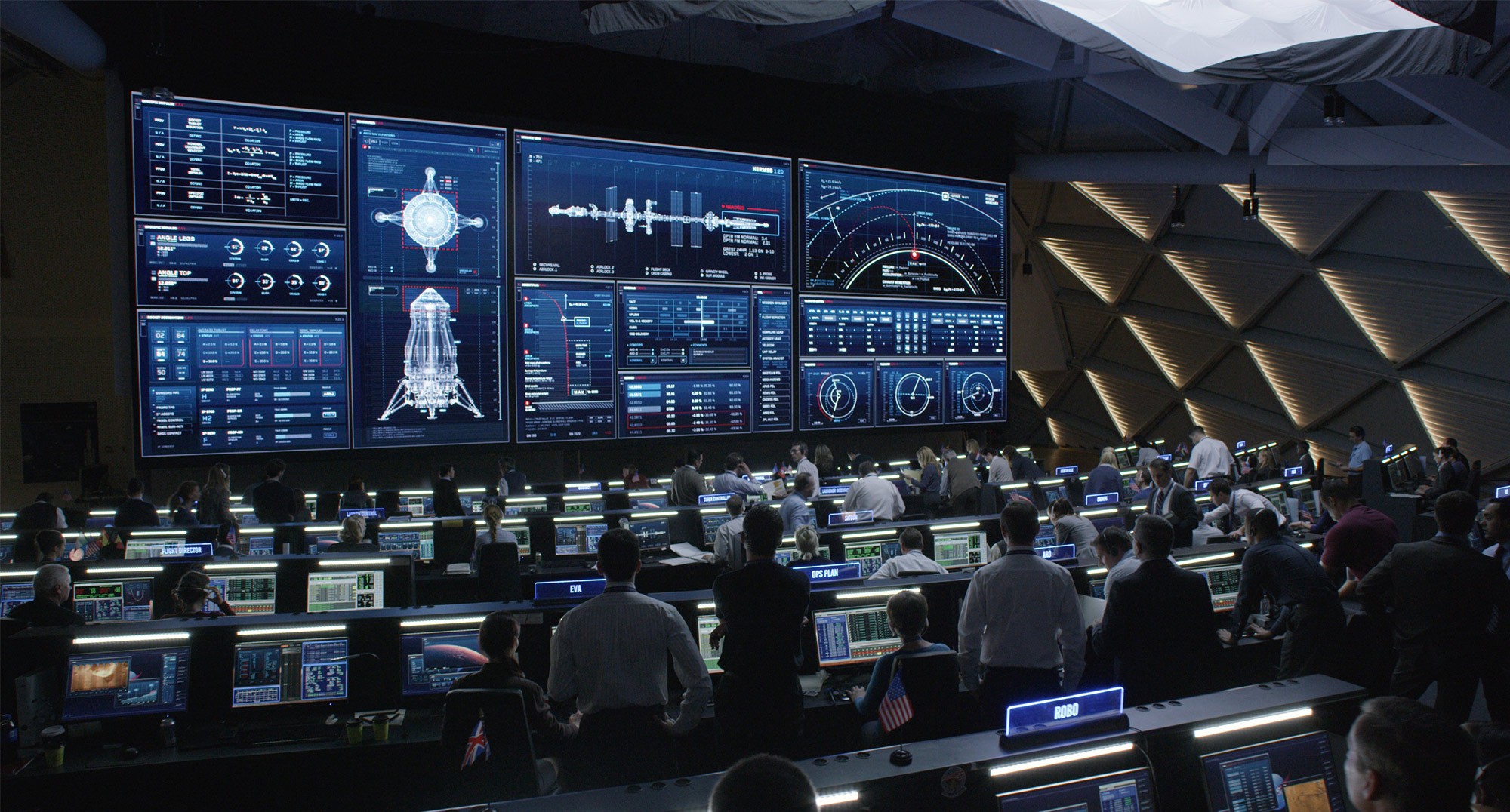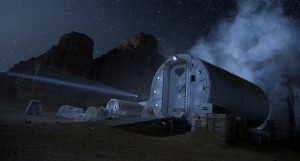Translating deep thinking into common sense
Bring Him Home, Indeed

By Jason Lockwood
October 29, 2015
SUBSCRIBE TO SAVVY STREET (It's Free)
Imagine a contemporary science fiction story that contains no references to environmentalism, no cutesy noble savages, no dystopian aftermaths, and no evil corporations, a story that reveres the individual mind, the efficacious can-do spirit, and has nail-biting suspense.
Imagine, if you will, a contemporary science fiction story that contains no references to environmentalism, no cutesy noble savages, no dystopian aftermaths, and no evil corporations. Imagine also a story that reveres the individual mind, the efficacious can-do spirit, and has nail-biting suspense. Impossible, right? Nobody writes stories like that these days, or, nobody makes money at it.
You would be wrong, thankfully. The Martian, an exciting science fiction story that has captivated the world, both in print and now on the silver screen, is proof that good stories about thinkers and problem solvers aren’t a thing of the past. It’s a simple story told without fanfare or purple prose. Mark Watney is a botanist on a mission to Mars who gets stranded on the Red Planet during a fierce storm, forcing his crew of fellow scientists to abort the mission prematurely and return home to earth. Both the crew and NASA back on Earth believe Watney to be dead. We know the truth, however: Watney is alive, but cannot survive for long on the planet alone.
The novel opens with Watney’s first log entry, stating from the outset that he’s “pretty much f***ed.”
The novel opens with Watney’s first log entry, stating from the outset that he’s “pretty much f***ed.” He knows he has little chance of surviving on his own, but instead of wallowing in self pity, he makes light of the situation by describing in detail the origin of the Ares 3 mission, as well as the previous two missions to Mars. Author Andy Weir provides a lot of scientific detail, but his breezy style makes it all enjoyably readable. The movie, on the other hand, opens with the storm that strands Watney on the planet, followed by the revelation that our hero is still alive. It’s a logical shift, given the difference between novels and movies. The novel’s opening would have made for a pretty humdrum cinematic experience, so it makes sense to have a very visual opening scene in the movie.
Fans of the novel (and I’m one of them) anxiously awaited the movie adaptation, which stars Matt Damon in the lead role, but also anticipated the disappointment of a beloved novel once again getting the shabby Hollywood makeover. They could have inserted politically correct paradigms into the story, or they could have trivialized the science for the sake of syrupy emotional arcs. Let’s make something clear: The Martian is, at its core, a story about the efficacy of scientific thinking and of logical problem solving. It’s also infused with tongue-in-cheek humor and, let us be frank, quite a lot of blue language. My only criticism of the novel is its language was sometimes juvenile. The movie version corrects this by including an occasional four-letter word for effect, but it also retains the humor of the novel. The immense tension of the story needs occasional comic relief.
The movie abridges the scientific explanations and, instead of presenting Watney’s written logs, uses video logs. Again, this is a needed modification to maintain the cinematic feel, and, like in 2000’s Cast Away, the lone protagonist needs a device to present dialog. In Cast Away, it was Tom Hanks talking to a personified soccer ball, whereas in The Martian, it’s Damon speaking directly into the camera.
 It becomes clear, early in the story, that for Watney to survive, he’ll need to rely on his skills as a botanist. But here’s the rub: on a planet where nothing grows, he has to come up with a way to cultivate potatoes in order to prolong his life. To do that—he has to devise a way to convert Martian soil into earth, he has to create water, and he needs a greenhouse of sorts in which to grow the potatoes. The novel tells, in minute detail, how he’ll accomplish this impossible feat, whereas the movie shows it in a montage-like approach, with occasional voice over by Watney.
It becomes clear, early in the story, that for Watney to survive, he’ll need to rely on his skills as a botanist. But here’s the rub: on a planet where nothing grows, he has to come up with a way to cultivate potatoes in order to prolong his life. To do that—he has to devise a way to convert Martian soil into earth, he has to create water, and he needs a greenhouse of sorts in which to grow the potatoes. The novel tells, in minute detail, how he’ll accomplish this impossible feat, whereas the movie shows it in a montage-like approach, with occasional voice over by Watney.
When Watney finally makes contact with NASA back on Earth, the story becomes a beat-the-clock attempt to rescue our botanist hero. Both novel and movie juggle scenes on Mars and back on Earth, with a cavalcade of scientific experts jockeying to come up with a realistic way of bringing Watney home safely.
Criticism of the story—and primarily the movie—has been that it’s “predictable” and “procedural.” Another criticism I read was that there are no major conflicts between the characters, thus becoming a rather shallow affair with no real dramatic tension.
I disagree with all these criticisms. If the knowledge that triumphant success is the outcome of the story from the beginning, then yes, The Martian is predictable. But that’s the only thing predictable about it. From start to finish, the manner in which Watney and the NASA crew will succeed is far from evident. There are false starts, scientific theories that don’t pan out, and one failure after another. I liken this kind of criticism to decrying detective stories as predictable because one knows the PI will solve the mystery and the baddie will get his comeuppance in the end. The joy of detective stories lies in the how and the why: how the detective figures it all out, and why the villain committed his heinous acts. And so it goes for The Martian. I took great pleasure in watching—and reading about—how both Watney and NASA figure it all out.
 As for the procedural argument, is there a story of this type that isn’t procedural? In other words, if Watney is to survive and ultimately return home, doesn’t he have to do things in a certain order to ensure success? There’s no growing potatoes without soil and water first. I think this criticism amounts to the complaint that there isn’t enough complexity and nuance in the story, but then, it’s a science fiction story, not The Brothers Karamazov.
As for the procedural argument, is there a story of this type that isn’t procedural? In other words, if Watney is to survive and ultimately return home, doesn’t he have to do things in a certain order to ensure success? There’s no growing potatoes without soil and water first. I think this criticism amounts to the complaint that there isn’t enough complexity and nuance in the story, but then, it’s a science fiction story, not The Brothers Karamazov.
The third criticism is valid, insofar as serious fiction runs the gamut of conflict, from internal to interpersonal. Classic novels, like Victor Hugo’s Les Misérables, contain conflicts both internal (Jean Valjean’s lifelong struggle for redemption) and interpersonal (his lifelong evasion of his arch nemesis Inspector Javert). Admittedly, great literature is much more elevated than popular fiction. As popular fiction, however, The Martian delivers an exciting story about science unlike any released in recent years.
It’s important to take a story for what it is, rather than what one wishes it could be. If it were the case that the story was implausible and the pacing sluggish, then a review would rightfully note those shortcomings. This is one of the few science fiction stories that strives to be scientifically accurate without resorting to contemporary finger-wagging tropes. Though I am neither rocket scientist nor botanist, I accepted that there would be some liberties taken in the interest of keeping the story moving. As for the pacing in both novel and movie, it’s breathtaking. The novel is much more intimate, whereas the movie opens up the story and renders it majestic. Clocking in at well over two hours, the movie could have had dull sections and fillers.
Another admirable aspect of The Martian isn’t even discussed, but taken for granted. These days, race, gender, and sexuality take center stage in so many areas of cultural life, but in The Martian, there isn’t a single scene that focuses on the tedium of political correctness. There are male characters, female characters, white characters, black characters, and Asian characters, but the only important characteristic is competence. The novel doesn’t even describe the physical attributes of the characters, because it doesn’t matter. The great virtue of the story is its implicit focus on the individual, and not just our stranded hero. Even those back on earth, who are tackling the technical problems of devising a way to rescue Watney, are shown to be working alone.
Instead of using manipulative techniques to trigger emotions, both novel and movie satisfy by solving problems. The emotional reaction is thus earned, not foisted on the reader or audience.
There is a singular pleasure in experiencing a “feel-good” story like The Martian. For once, it isn’t a maudlin exercise in tugging heartstrings. Instead of using manipulative techniques to trigger emotions, both novel and movie satisfy by solving problems. The emotional reaction is thus earned, not foisted on the reader or audience. It also has appeal beyond the usual sci-fi geek demographic. I saw the movie with my partner and his teenaged daughter. All three of us walked out of the theater feeling energized and excited by what we’d seen. If The Martian has a wider impact than just entertainment, then it’s proof that art—both popular and literary—can and does inspire people to think and act in positive ways. In my mind, that’s a big win.








Jason, I think your review is right on the money: No, The Martian is not Les Miserables, but it’s an inspiring look at human problem solving. I would add that it’s a look at specifically American problem solving, with the can-do attitude, the wise-cracking and, yes, the vulgarity. It’s not a story about German engineering.
Thanks, Kurt. I know you expressed some criticisms of the movie on Facebook, which I discussed in my piece without mentioning you as the source. I do agree with you that the MOST satisfying fiction also contains the full range of conflict. That’s what makes it literature and not just pop fiction.